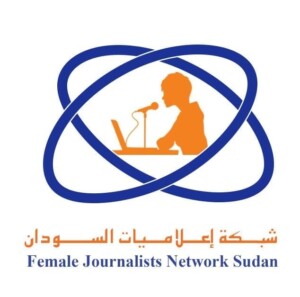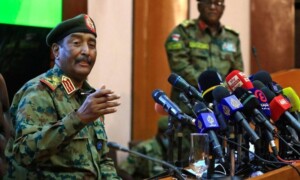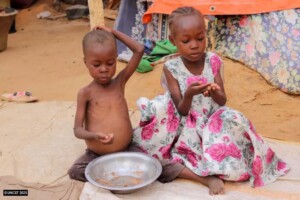Sudan and Egypt express ‘deep concerns’ over Ethiopia’s GERD filling
Sudan and Egypt issued a joint statement yesterday to express their concerns over the unresolved issues regarding the controversial Grand Ethiopian Renaissance Dam (GERD) after a meeting between ministers of both countries.
 PM Hamdok during a meeting of Sudan's GERD Committee earlier this week (social media)
PM Hamdok during a meeting of Sudan's GERD Committee earlier this week (social media)
Sudan and Egypt issued a joint statement yesterday to express their concerns over the unresolved issues regarding the controversial Grand Ethiopian Renaissance Dam (GERD) after a meeting between ministers of both countries.
Sudan's Prime Minister Abdallah Hamdok received the Egyptian Ministers of Foreign Affairs and Irrigation in his office in Khartoum yesterday to discuss bilateral relations and the issues regarding the GERD*.
The meeting was also attended by the Sudanese Minister of Foreign Affairs, Dr Mariam El Sadig El Mahdi, Minister of Irrigation and Water Resources Yassir Abbas, and Egyptian Ambassador to Sudan Hussam Issa. Technical experts from both countries also participated.
A joint statement was issued following the one-day visit after the meeting on the GERD. Both parties agreed on the “serious risks and effects” of the unilateral filling of the GERD and stressed the importance of coordinating bilateral efforts at the regional, African, and global levels to push Ethiopia “to negotiate seriously, in good faith and with real political will, in order to reach a comprehensive, fair, and legally binding agreement on the filling and operation of the dam”.
The statement explained that Sudan and Egypt share ‘identical views’ on the importance of cooperation and coordination to protect regional security, stability, and peace. It also stated that this requires intervention by the international community to put pressure on Ethiopia to negotiate and reach an agreement.
According to both countries, Ethiopia imposes the GERD’s second filling as a ‘fait accompli’ as it announced that it would fill the dam in the coming rainy season, regardless of whether an agreement has been made.
The ministers from both countries expressed deep concerns about the potential effects and damages of the GERD filling on the two downstream countries if no legally binding agreement is made that will regulate the operation of Africa’s largest hydroelectric power plant on water supply in Sudan and Egypt.

Earlier this week, Sudan’s GERD committee already stated that it aims to use all the legal means possible through different regional and international institutions to defend Sudan’s legitimate interests and concerns about the dam filling.
Controversies
The dam, Ethiopia’s intention to fill it, and the ramifications to Sudan and Egypt downstream have been the subject of sharp and often fruitless negotiations, which are now progressing due to international efforts at mediation.
Last month, 22 NGOs warned of military confrontations between the three countries if the long-running dispute between the governments of Ethiopia, Sudan, and Egypt over the building, filling, and operating of the GERD is not resolved quickly.
"The project is expected to have profound effects on the future of the three countries and the African sub-region. While it represents an important development opportunity for Ethiopia as its prime owner, the impact of GERD on Sudan and Egypt cannot be overlooked", their statement read.
* Ethiopia began to build the GERD in 2011 at the source of the Blue Nile, near the border with Sudan, and the dam is currently in the final phase of construction. In August last year, Addis Ababa unilaterally began filling the dam reservoir.
The Blue Nile contributes approximately 85 per cent to the volume of the main Nile River. Both Egypt and Sudan heavily depend on the waters of the Nile to meet the demands of their growing populations.
The three countries signed a Declaration of Principles in Khartoum in 2015 as a basis for negotiations, but no agreement on the use of the Nile waters has been reached so far. More than once, negotiations under the auspices of the Africa Union ended in a deadlock. Recently, the EU and the USA have both expressed their willingness to mediate between the three countries.











 and then
and then